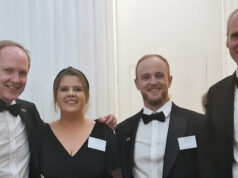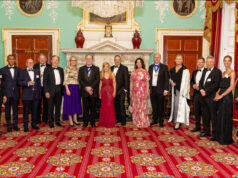SOUTH AFRICA’S nascent technology blogosphere was abuzz late September as the collection of entrepreneurs, journalists and investors who make up the ICT start-up scene saw Motribe, a mobile messaging platform, bought by social networking business Mxit.
Motribe is one of the first – and few – start-up technology companies to be created, built, and in venture capital terms “exited” since the beginning of the Silicon Cape initiative, demonstrating that the tech start up scene is approaching some degree of maturity.
Its buyer, Mxit, is one of the stars of a scene that has been gestating for some time but only emerged in the past half decade, when a group of entrepreneurs began the movement as a way of bringing together the country’s emerging technology start-ups under an umbrella to combine promotion and lobbying activities.
“From a brand perspective, if you go back about five years I think the tech start-up scene in the country was almost nonexistent,” Tyler Reed, a serial entrepreneur based in Johannesburg, told Gateway to Africa. “I think the only successes that we could really ever brag about were Mark Shuttleworth and Vinny Lingham.”

33-year old Lingham, one of the Silicon Cape’s founders, is a South African entrepreneur based in the US, and CEO of Yola, a website building and hosting company, while Shuttleworth, famous for being the first African in space, created the Ubuntu operating system. Both have set examples that have proved hard to emulate.
However, local entrepreneurs say that things are gathering pace, as networks of angel investors and venture capitalists emerge to back a new generation of start-ups. Groups such as AngelHub and World of Avatar, under which Mxit was developed, are lending support to turn good ideas into businesses.
However, finance has not come easily, and the traditional venture capital industry still focuses more on growth businesses – i.e. those that already have some revenue – than true start-ups. That will need to change if the industry is to develop, Reed said.
He also echoed issues that have been raised by a number of analysts looking at the environment for innovation in the country, that the government’s outdated laws covering intellectual property, as well as more general issues around the ease of starting and running businesses, are standing in the way of progress.
It was a sentiment expressed forcefully by Lingham, who in a recent online discussion – posted on YouTube – about the environment for South African entrepreneurs working in the global technology space, lamented that he is unable to set up South African subsidiaries for his US companies. “It’s so business unfriendly,” he said, in a scathing statement.
“If I want to create jobs, hire people there or move employees from the Cape Town Office to the US, I can’t… because South Africa has a silly law from 1960 from back in the apartheid days when people were leaving the country and they didn’t want you to externalise any IP. The unintended consequences are that if you are already outside South Africa we can’t help the country.”
He went on to worry about the depth in capacity within government. “They themselves are not smart enough to understand the impact this is having on the economy. There’s very few people in government who have ever built businesses,” he said. “They’ve spent more time in prison than in business.”
Over the past year, the country has has improved its World Bank Doing Business report rank by one place, and within that ranking the specific indicators for starting businesses and registering property were significantly better. Even so, entrepreneurs, including Reed, say that not enough has been done by government to get out of the way of businesses in their early stages.
“[When you are] registering a company, there are just too many minor complexities,” he said. “As you do it the second, third, fourth time it gets easier, but the first time is really important. It’s allowing new people into that space. It’s overwhelming.”
Across the technology industry more broadly, confidence appears to be low. Research from IDG Connect, which polled 130 IT professionals, found that 69 per cent of those surveyed believed that there is a “severe shortage” of skills in the industry. 62 per cent do not believe that the industry as a whole is investing wisely in its next generation, while 81 per cent worry that the country is losing its best talent overseas.
“These findings suggest the South African IT market has reached a crisis point,” Kathryn Cave, the report’s editor, said in a press release.
www.gatewaytoafrica.com









